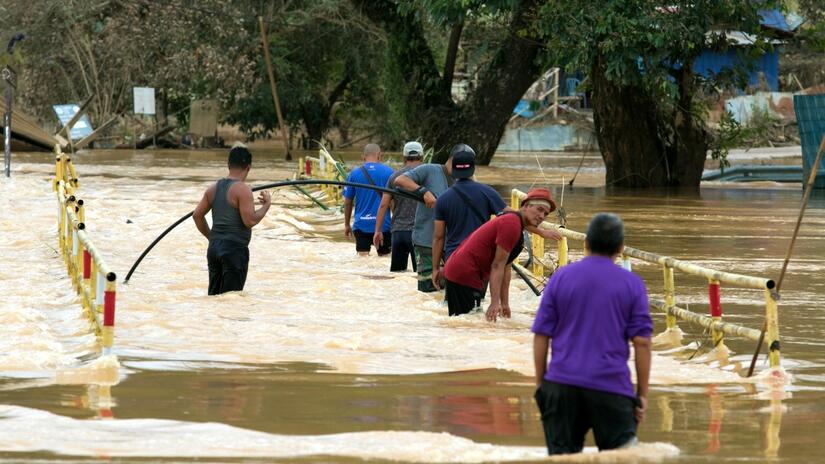The latest scientific evidence, including the most recent IPCC report, reconfirms the truth of those words. Our planet is in a period of accelerating climate and environmental crises, the effects of which are being felt by all of us. As humanitarian organizations, we see this every day in our work.
As the world prepares to come together for COP26 in Glasgow in November, we urge negotiators to bear in mind the humanitarian consequences of their decisions. Climate-related disasters have nearly doubled in the past 20 years and weather-related hazards are now the number one driver of internal displacement, affecting most notably the poorest and most marginalized people. The climate crisis is adding an additional layer of stress to humanitarian organizations that are already stretched thinner than ever before. Urgent and ambitious action is needed to cut greenhouse gas emissions and adapt to rising risks, so that we can avert the most disastrous consequences on people and the environment. Without ambitious climate action, humanitarian organizations will struggle to respond to increasing needs.
Even in the best-case scenarios over the coming years, we know that a certain amount of climate change and environmental degradation is set to occur, and that their humanitarian consequences are likely to increase. We must consider individual characteristics such as age, gender, and legal status, as well as structural situations that affect people’s exposure to risk, to ensure that people who are most vulnerable to those consequences receive the support they need to protect themselves and their livelihoods.
When we signed the Charter, we committed to scale up our action, reduce risks and vulnerability, and support those most at risk. We pledged to act upon local leadership and experience, to invest in durable responses, and to draw on and amplify local and indigenous knowledge. We promised to reduce our greenhouse gas emissions, minimize the damage we cause to the environment, and reduce our waste, and to share information, insights, and resources so that the impact of our efforts is amplified.
We know that radical transformation is needed. We are determined to act, urgently and intentionally, and we call on everyone, across the humanitarian sector and beyond, to do the same.
Signed,
Signatories to the Climate and Environment Charter for Humanitarian Organizations
The Charter is open for signature by all humanitarian organizations. Information about the Charter and guidance on its implementation are available at www.climate-charter.org

